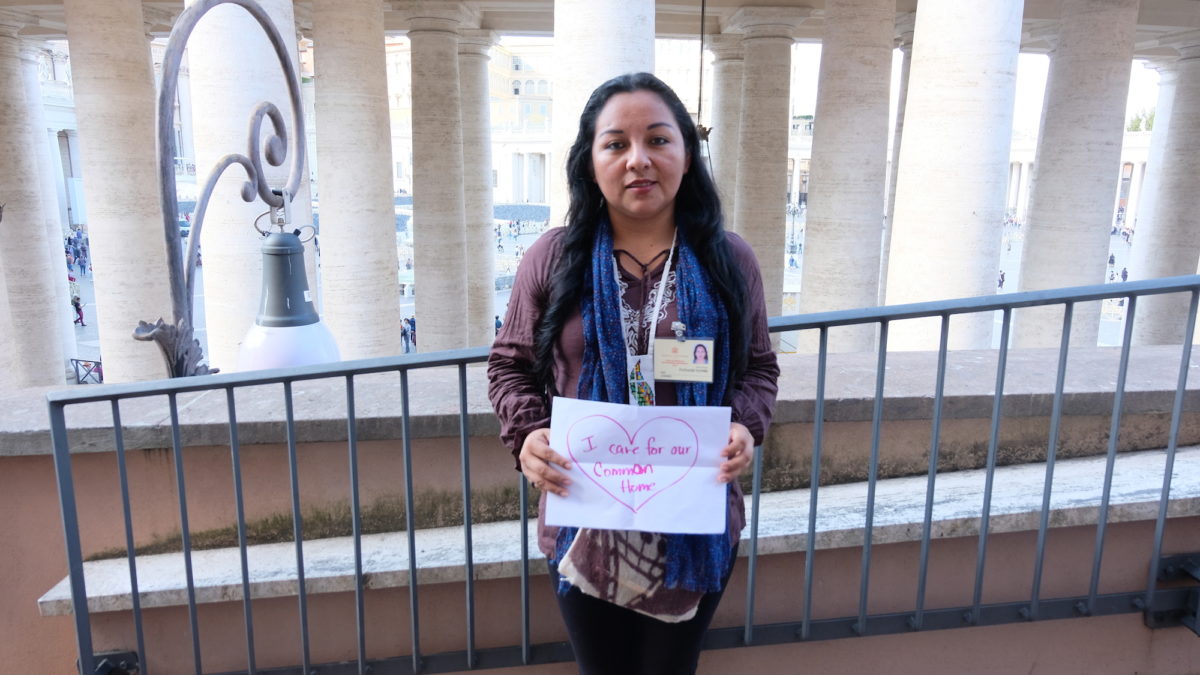The Amazon Synod: God who speaks

Francis Stewart from our Theology team reflects on the Amazon Synod in the light of the Year of the Word being celebrated in England and Wales until December 2020.
“Do you have eyes, and don’t see, do you have ears, and fail to hear?”
(Mark 8:10)
The working document for the Amazon Synod included this warning from Jesus to the disciples for their lack of faith in God’s signs and wonders.
The synodal assembly has seemed like new territory for the Church – truly a sign and a wonder. Yet what we are seeing is not a change in the way God speaks. We trust that God has always spoken through his sidelined and rejected people. Instead this is a change in the way in which we, the Church, listen.
The cry of the Earth and the cry of the poor
During the Synod, the bishops of Pan-Amazonia were, in Pope Francis’ words, “listening to the voices of the poor and reflecting on the precariousness of their lives, threatened by predatory models of development.”
These are the voices of people who experience the earth, he said, “not as a resource to be exploited, but as a home to be preserved”. Throughout history, however, they have not been accustomed to having their voices heard.
“I think that indigenous communities are the most invisible people on the planet,” says Yesica Patiachi Tayori of the Harakbut people in Peru.
Yet the Synod indeed had eyes to see, and ears to hear. At CAFOD we have heard about the hope this has brought to indigenous people.
Yesica, who attended the historic meeting, told us:
“The Synod is very positive for us. Pope Francis wants to listen to us. We bear the true witness, because we are the ones who suffer. He has given us hope that we are not alone.”
Hearing the Word in the Amazon
For many Amazon people, being Catholic can look very different from how it looks to you or me. Some indigenous communities, dwelling in places where rivers are the only roads, have access to the Eucharist just once a year.
For some in those remote communities, hearing God speak from the scriptures is all the more central to their faith and life. Furthermore, their radically different experience could illuminate the Scriptures for the Catholic community in England and Wales, if we have listening ears.
Consider how the Scriptures are unlocked by the experience and situation of those who hear it. If you are persecuted daily, and your land, source of life, heritage and healing is slashed and burned, wouldn’t you read the story of God as a crucified healer slightly differently?
The indigenous and traditional communities whom CAFOD accompanies in the Amazon are faced by the invasion of agribusiness and mining interests, destroying the ecosystems on which they depend.
When these interests are defied, community leaders and those who support them are often threatened with violence, even assassination.
In solidarity with the people of the Amazon, we often speak of God’s love for the persecuted. But in the story of Jesus Christ, God is the one persecuted and crucified.
Read more about the challenges faced by those defending our common home.
A new kind of trust
With the light of the Synod to guide us, how might we interpret those words of Jesus with which we began: “Do you have eyes and don’t see, do you have ears and fail to hear?”
Shortly after the disciples have witnessed the feeding of the four thousand, they still worry about not having bread for their own journey. Jesus points them back to the wonder of the hungry masses fed with five loaves and two fish – haven’t they missed his point?
This seems like an invitation to a profound trust: trust Jesus’ way – take no purse, have no worries, have faith and love, and you will be fed.
To the threatened peoples of the Amazon, perhaps this is a trust in their own reserves, integrity and inherited wisdom. Against the ‘package of progress’ peddled by agribusinesses – their fertilizers and modified seeds and industrial agricultural techniques – a brave trust in humbler, more respectful ways of caring for the earth is the bread that will satisfy.
The indigenous people have expressed their wish to be heard, to be respected and to be accompanied. There is a profound hunger in the Amazon and the Synod has shown that the Church is being asked to respond in new and creative ways. Not by focusing on numbers of baptised, nor remaining just a ‘visiting Church’ to the remote communities of the Amazon; it must be present in an integral way: first offering the means and support for people to defend their way of life, and then offering the word of God as an inspiration to trust and stand by this way of life – before it is gone forever.